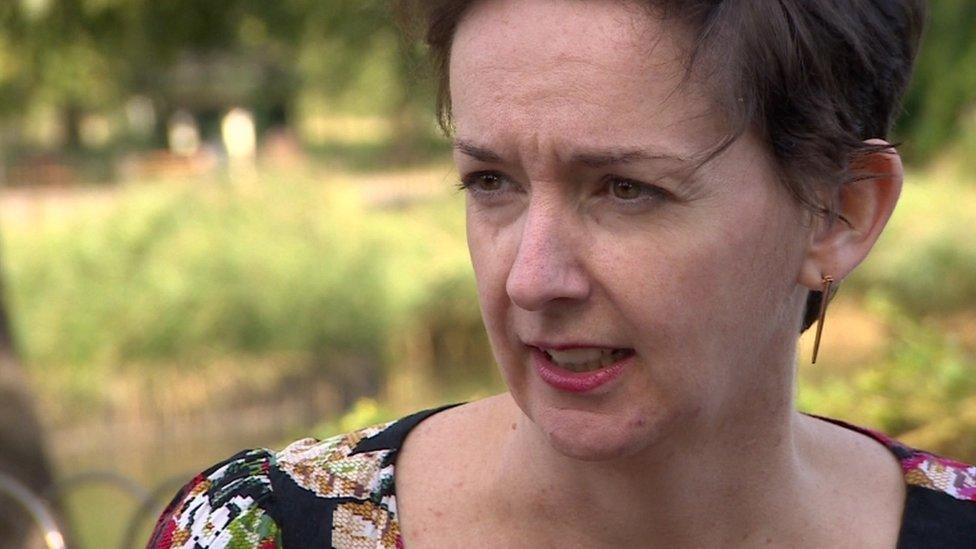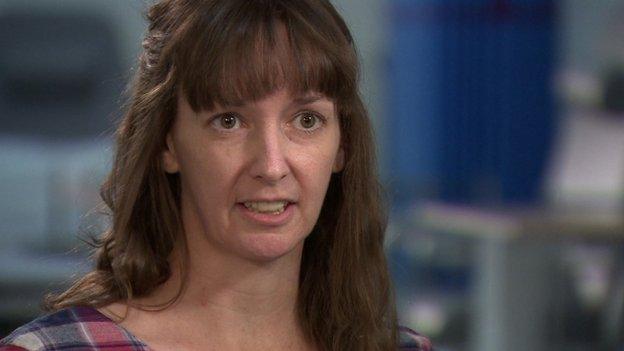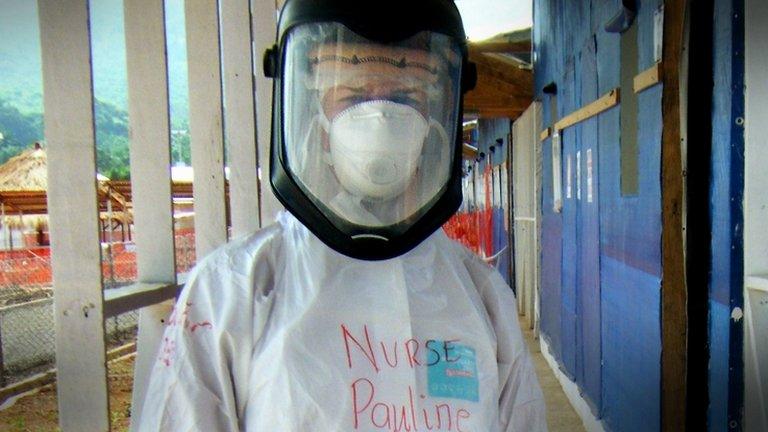Ebola nurse's close contacts identified
- Published

Ms Cafferkey is still being treated at a specialist isolation unit in London
A total of 58 people who had been in close contact with Scottish nurse Pauline Cafferkey, who contracted Ebola in Sierra Leone, have been identified.
Ms Cafferkey remains in a serious condition after being readmitted to the Royal Free Hospital in London last week.
She underwent a month of treatment at the same hospital in January.
Health officials said 40 of the 58 people identified had been offered vaccinations.
They were thought to have potentially had contact with Ms Cafferkey's bodily fluids.
Of these, 25 have now been vaccinated, with the remaining 15 either declining to be vaccinated or unable to receive it due to other medical conditions.
'Closely monitored'
The close contacts of Ms Cafferkey were said to be a mixture of healthcare workers, her family, friends and community contacts.
A statement released by the health board said: "All 58 close contacts are being closely monitored. This includes a period of 21 days since their last exposure where they will have their temperature taken twice daily, restrictions placed on travel and, in the case of healthcare workers they have been asked not to have direct patient contact during this period.
"The 25 who were vaccinated will undergo additional monitoring because the vaccine is still being evaluated.
"It is important to stress once again that there is no risk to the general public. Ebola is not spread through ordinary social contact, such as shaking hands or sitting next to someone. Nor is it spread through airborne particles."
The rVSV-ZEBOV vaccine offered to close contacts of Ms Cafferkey is currently being trialled in collaboration with the World Health Organisation and has been tested in more than 7,000 people during the recent outbreak of Ebola virus infection in Guinea.
It is an unlicensed vaccine, which is currently being trialled.
'Not infectious'
Ms Cafferkey was flown in a military aircraft to the specialist infectious diseases unit at the Royal Free last week.
She had earlier been admitted to the Queen Elizabeth University Hospital in Glasgow after feeling unwell.
Subsequent tests showed that the Ebola virus was still present in her body.
Ms Cafferkey had contracted Ebola while working as a volunteer with Save the Children at a treatment centre in Kerry Town, in Sierra Leone.
She was diagnosed on 29 December last year, after returning to Glasgow via London, and was treated at the Royal Free.
At the time of her release from the hospital, Dr Michael Jacobs, who had been helping to treat her, said Ms Cafferkey had completely recovered and was "not infectious in any way".
- Published11 October 2015

- Published10 October 2015

- Published18 August 2016
